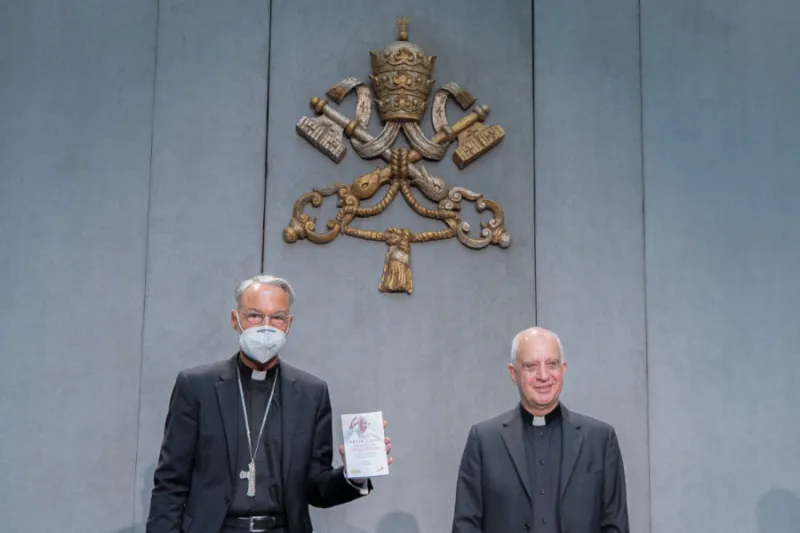 Saint Macarius Monastery in Egypt’s Beheira governorate, November 2010. / Berthold Werner via Wikimedia (CC BY-SA 3.0)
Saint Macarius Monastery in Egypt’s Beheira governorate, November 2010. / Berthold Werner via Wikimedia (CC BY-SA 3.0)
Alexandria, Egypt, May 10, 2021 / 18:01 pm (CNA).
Wael Saad, a former monk of the Coptic Orthodox Church, was executed on Sunday for the 2018 murder of Bishop Epiphanius, the abbot of St. Macarius Monastery.
Saad’s brother told Reuters the family was told to receive his body from a morgue in Damanhour, 40 miles southeast of Alexandria, May 9.
Raymond Rasmi Mansour, another monk who assisted in the crime, has been sentenced to life imprisonment. Mansour had also been sentenced to death, but his sentence was reduced after winning an appeal.
Bishop Epiphanius’ body was found July 29, 2018, with injuries to his head and back that suggest that he had been hit by a sharp object.
Saad, whose monastic name was Isaiah al-Makary, was charged with the bishop’s murder Aug. 11, 2018, and confessed to the murder the following day. Saad said that Mansour, whose monastic name was Faltaous al-Makary, assisted in the crime. Mansour attempted suicide in August 2018.
Saad was expelled from the monastery Aug. 5, 2018 for “inappropriate actions which violate monastic behavior and way of life.” The Coptic Orthodox Church said that his dismissal had been decided on before the bishop’s death.
The bishop’s murder highlighted tension in the Coptic Orthodox Church over monasticism, ecumenism, and reform, and led to the Coptic Orthodox Patriarchate issuing several decrees on monasticism.
The Coptic Orthodox Church is an Oriental Orthodox Church, meaning it rejected the 451 Council of Chalcedon, and its followers had historically been considered monophysites – those who believe Christ has only one nature – by Catholics and the Eastern Orthodox.
Tawadros II, Coptic Orthodox Patriarch of Alexandria, announced Aug. 1, 2018 that the Church’s monasteries would stop accepting new brothers for one year. Those who established monasteries unapproved by the patriarchate were to be stripped of their priesthood and monastic state. No new monasteries could be founded except as a revival of old monasteries, and this was to be done under the care of a recognized monastery.
The Church also instructed its monks to close their social media accounts, and suspended the ordination of monks for three years. Permissions for monks to attend outside functions was also restricted.
Later that month the Church announced that unrecognized monasteries would have one month to submit to the supervision of the patriarchate.
Samuel Tadros, a senior fellow at the Hudson Institute, told the New York Times that Bishop Epiphanius was “a senior figure in a reformist Coptic movement” that has been favored under Tawadros.
“His appointment, in May, to position in which he would work as a liaison with the Catholic Church was seen as a sign that conservatives were being sidelined, Mr. Tadros said.”
Pope Francis visited Egypt in 2017, and signed a joint declaration with Tawadros announcing that their Churches would recognize the validity of each other’s baptisms.
Previously, the Coptic Orthodox Church had repeated baptism if a Catholic had sought to join it.
Conservative members of the Coptic Orthodox Church have reportedly resisted such reforms under Tawadros. According to a commentary by Engy Magdy in the Catholic Diocese of Brooklyn’s The Tablet, these conservatives are associated with Shenouda III, the immediate predecessor of Tawadros as Coptic Orthodox Patriarch.
The dispute goes back to tensions between Shenouda and Fr. Matta El Meskeen.
Fr. Matta was tasked by Cyril VI in 1969 with reviving monastic life at St. Macarius Monastery. The monk was focused on the spiritual life, openness to the thought of other Churches, and ressourcement.
While Shenouda was a disciple of Fr. Matta early on, after he was elected Pope of Alexandria in 1971 the two came into conflict. Shenouda restricted Fr. Matta to his monastery, and discouraged the reading of his books, according to an essay by Mina Thabet in Middle East Eye.
It was during this time, in 1984, that Epiphanius joined St. Macarius and became a monk. Epiphanius was a disciple of Fr. Matta, and was involved in ecumenism.
St. Macarius Monastery was long independent of the Coptic Orthodox hierarchy, but Shenouda restored it under the Church’s authority in 2009, and appointed some 70 conservative monks, among them Saad and Mansour.
In the year after Shenouda’s 2012 death, Epiphanius was elected abbot of St. Macarius, and consecrated a bishop.

[…]




